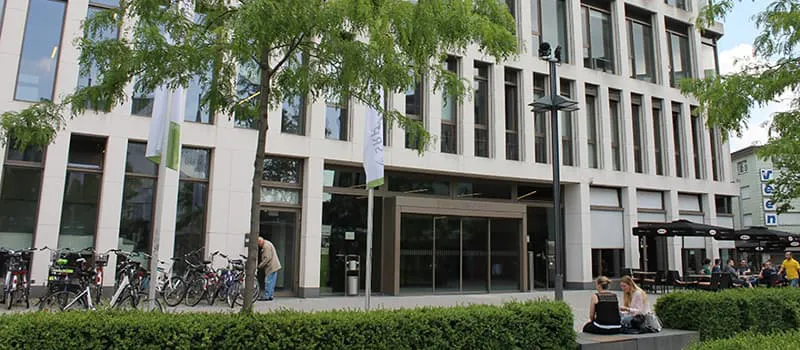Locations
You can study the programme B.Sc. Wirtschaftsingenieurwesen Logistik at the following locations:
Description of the programme
The degree programme combines industrial engineering with the know-how of logistics processes. In the process, business administration is interlinked with industrial engineering know-how. In accordance with our CORE principle, you will learn many skills that are important for your career and profession. Topics include digitalisation, entrepreneurship know-how, self-management, presentation techniques and scientific work. These promote your soft skills and develop your personality. Furthermore, you will study and learn in-depth management skills for controlling and structuring modern management.
Topics in logistics include entrepreneurship know-how, digitalisation, self-management, presentation techniques and scientific work. These are addressed in particular in courses and modules on computer science, e-business, SAP, programming and IT projects, as well as in seminars focusing on corporate management and planning and human resources management. However, we would also like to focus on the training and development of your soft skills and personality, for example with regard to self-management, tips and tricks on presentation techniques and scientific writing.
The B.Sc. Logistics programme focuses on the individual logistics functions within a company. This includes industry-specific requirements, economic efficiency and modern logistics technologies such as pick-by-voice - a highly exciting field, especially against the background of dynamic economic developments and challenges!
Why enrolling in this programme?
Logisticians can be found in almost every branch of business. Terms such as marketing logistics, waste disposal logistics, event logistics and hospital logistics show that the industry is constantly changing and evolving. You carry out concrete projects under real working conditions. This also allows your personality to grow. Project work often takes place in cooperation with a partner from the business world.
As an industrial engineer, you will be in demand in a wide variety of sectors:
Forwarding agencies
Logistics service providers
Management consultancies
Associations
IT service providers/software companies
Trade
Infrastructure providers (e.g. airport and container operators)
and many more.
Accreditations & awards
The SRH Hochschule in North Rhine-Westphalia has been system-accredited since September first, 2021 and bears the quality seal of the Accreditation Council. This certifies that the university has the highest standards in studying and teaching—students have the guarantee that planning, teaching and assessment are carried out according to certified processes. As a system-accredited university, the SRH Hochschule in North Rhine-Westphalia is entitled to accredit its study programmes independently and with the audited quality management processes. This procedure replaces the previously common programme accreditation.
Institutionally accredited
In 2013, the university received the seal of approval from Germany's highest scientific body, the Science Council. With the accreditation, the Council ensures the quality of research and teaching and checks whether they meet recognised standards. Among other things, the Science Council praises the high level of identification of the teaching staff with the university and the pronounced commitment to teaching and student support. The SRH Hochschule in NRW was institutionally reaccredited in 2018. In its vote, the Science Council emphasises the positive development of the university. It also confirms that the university is valued as a co-operation partner in the region by companies and institutions in the social sector.
Award for the teaching and learning model CORE
In 2018, the Stifterverband recognised the CORE teaching and learning model with the Genius Loci Award, the only institutional award for excellent teaching in Germany. With the CORE principle (Competence Oriented Research and Education), SRH created a unique teaching and learning model in 2012 based on scientific findings from learning and brain research.


 German
German